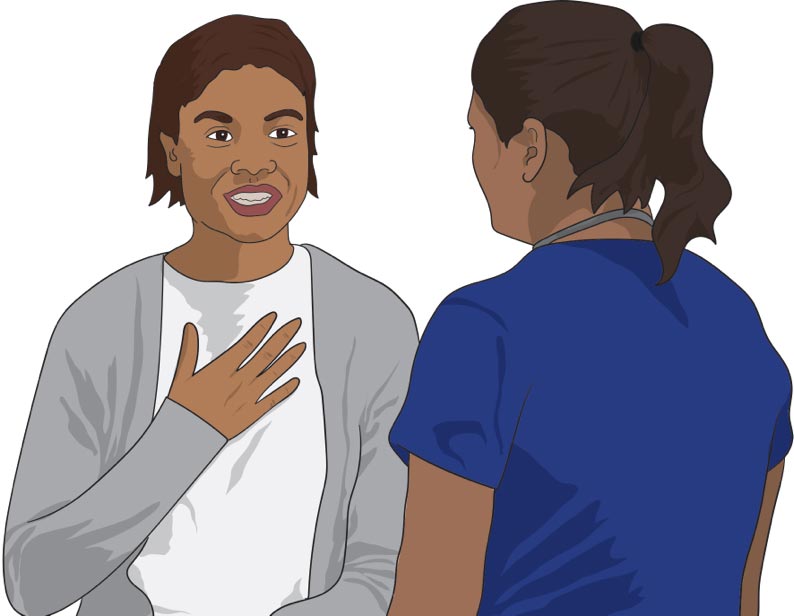- Home
- Where can I get help and support
- Racism and your rights

Where can I get help and support

Rights and racism
As members of the international community of Indigenous peoples, we can use the United Nations Declaration on the Rights of Indigenous Peoples (UNDRIP) to insist our human rights are respected and upheld.
The Declaration is a set of universal standards for the “survival, dignity and well-being of the Indigenous peoples of the world” and addresses things like racism and our fundamental freedoms as Indigenous peoples.
Unfortunately, during your cancer journey your human rights may be breached, and you may encounter racism from people within health systems or the systems themselves.
It is important to know that in Australia, racism is against the law, and you are empowered to address any form of racism committed against you. Racism can have detrimental impacts your health and wellbeing and hinder your fight against cancer.
In this section, we will provide you with information to help you address racism and places you can contact for support if you ever encounter racism on your cancer journey.
What to do
If you encounter racism or you believe your human rights have been breached, here are some things you can do:
- Call 000 if you feel you are in danger.
- You can report behaviour that you think might be a criminal offense by phoning the police on 131 444.
- Keep a record of with dates, times, locations and names of what is happening.
- Yarn with someone you trust about what is happening.
- Yarn with your doctor, nurse or Aboriginal and/or Torres Strait Islander health worker
- Seek information and support from organisations (online, phone or in-person) who deal with racism and human rights.
- Report what is happening to someone in the organisation who holds a position of responsibility.
- Phone the Australian Human Rights Commission for advice on 1300 656 419 04 or (02) 9284 9600.
You can find out more about racism and what to do at Racism Stops With Me or the Australian Human Rights Commission.

People and places that can help
If racism is happening at a hospital or clinic where you are receiving treatment, tell an Aboriginal and/or Torres Strait Islander health worker or a staff member you trust. They can assist you with submitting a complaint. If you are not satisfied that your complaint has been heard or addressed, you can request to speak with the local hospital Chief Executive Officer and submit your complaint to them.
If speaking up yourself is not safe or does not make things better, you can seek help from the Australian Human Rights Commission to make a complaint. Phone 1300 656 419 or email infoservice@humanrights.gov.au.
If the person is a general practitioner (GP), you can submit a complaint to the Royal Australian College of GPs (RACGP) using an an online form or phone 1800 472 247.
If it’s an Aboriginal and Torres Strait Islander community-controlled health service, you can submit a complaint to the National Aboriginal Community Controlled Health Organisation. You can use an online whistleblower form if you are a member of a service or phone 02 6246 9300.
If it’s a social worker, you can submit a complaint to the Australian Association of Social Workers. Phone 03 9320 1000.
You can also contact Medicare to submit a complaint about the quality of health care provided to you.
Cancer in our mob
FIND OUT MORE
Life with and after cancer
FIND OUT MORE

